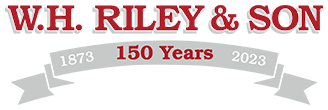10 Fun Facts About Propane Gas
 If you use propane, you know that it’s clean, green and powerful – capable of efficiently running just about any appliance inside or outside your home. But what else do you know about this incredible gas?
If you use propane, you know that it’s clean, green and powerful – capable of efficiently running just about any appliance inside or outside your home. But what else do you know about this incredible gas?
Here are ten interesting facts about propane – to learn even more, check out this video.
- Propane is one of the lightest hydrocarbons in existence, which makes it one of the cleanest burning of all fossil fuels. Its molecular formula is C3H8.
- Propane is nontoxic, colorless, and has no smell; an odorant (which smells like rotten eggs) is added to make leaks easy to detect.
- Propane is 270 times more compact as a liquid than as a gas – which is why it is stored and transported as a liquid.
- Most domestic propane is a byproduct of natural gas processing – specifically, propane is extracted as part of a process that removes condensation from natural gas pipelines. Current U.S. propane supplies are abundant due in large part to an overall increase in natural gas production.
Some propane is also produced from the crude oil refinement process. During the stabilization stage of crude oil refining, heavier hydrocarbons sink, while lighter hydrocarbons (such as propane) rise, making them easy to separate. In combination with butane, propane accounts for between one and four percent of processed crude oil.
- Nearly 90 percent of the U.S. propane supply is produced right here at home, so choosing propane supports domestic fuel independence. About three-quarters of the remaining domestic propane supply comes from Canada or Mexico.
- Propane is the only alternative fuel listed in the 1990 amendments to the Clean Air Act and the National Energy Policy Act of 1992; neither the process by which propane is produced nor the combustion of propane gas produces significant acid rain contaminants.
- Propane gas does not spill, pool, or leave a residue; this makes it harmless to soil or groundwater in the event of a leak.
- Propane furnaces can be up to 95 percent efficient; propane tankless water heaters can achieve even greater efficiency – up to 98 percent.
- Propane clothes dryers dry more quickly while creating less static than electric units, saving you time and money and reducing wear and tear on your wardrobe.
- Propane cooking ranges offer precision temperature control – a key reason why nearly 95 percent of professional chefs choose to cook with gas. Propane stoves also cost less to operate than their electric counterparts.
Propane – a high-performance fuel for your home or business! Thinking about making the switch? Contact W.H. Riley & Son today to learn more about propane equipment installations and propane delivery in southeastern Massachusetts!

